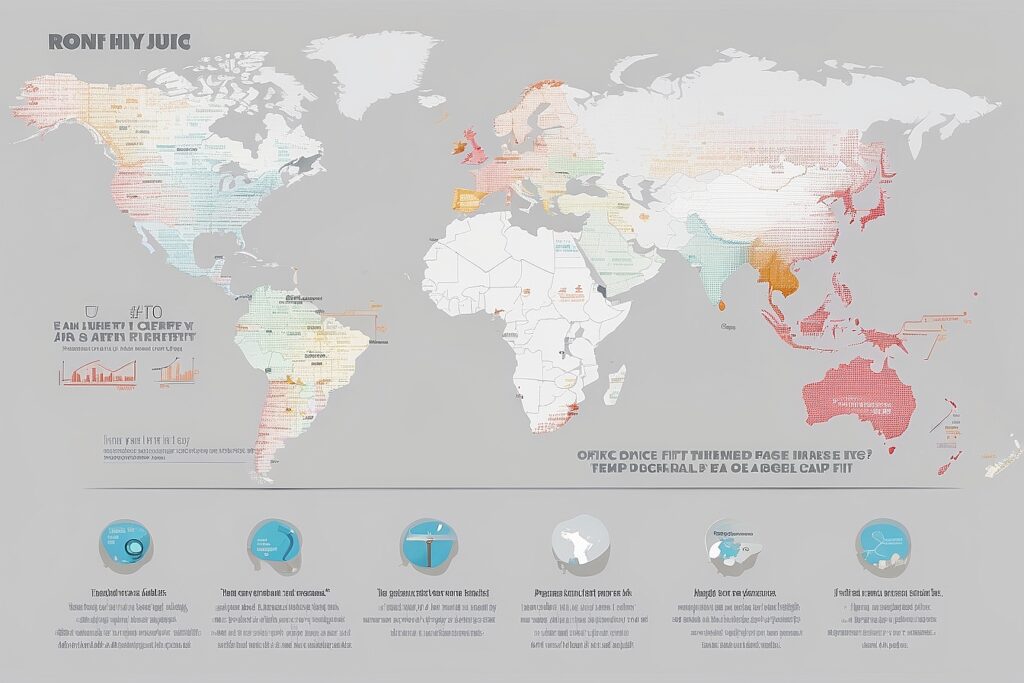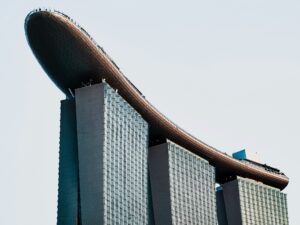Tokyo has surpassed Sydney to become the priciest city for office fit-outs, marking a trend of escalating costs across the Asia Pacific region. This increase mirrors the persistent impact of inflationary pressures, elevated commodity prices, and heightened construction expenses. The latest findings from JLL’s Asia Pacific Fit-Out Cost Guide 2023/2024 underscore the ongoing challenges faced by businesses in managing office refurbishment expenses amidst a dynamic economic landscape.

The latest Asia Pacific Fit-Out Cost Guide 2023/2024 by global real estate consultant JLL (NYSE:JLL) reveals a 0.5% year-on-year increase in the average cost of fitting out workplaces across the region. This uptick sees the average fit-out cost per square meter rise to US$1,161, up slightly from US$1,159 recorded in the previous year.
Tokyo has reclaimed its position as the most expensive city for office fit-outs in the Asia Pacific region, surpassing Sydney. With a cost of US$2,071 per square meter, Tokyo reflects the impact of inflationary pressures on project pipelines. Despite a significant 20% rise in construction prices at the local currency level, confidence remains high in the Tokyo market. The trend toward high-quality workplaces continues to drive demand, underlining the resilience of the sector.
Inflationary pressures are evident across various markets in the Asia Pacific region, contributing to the overall rise in fit-out costs. However, the market sentiment remains positive despite these challenges. Businesses continue to prioritize the creation of modern and efficient workspaces, driving demand for quality fit-outs.
While Tokyo leads in terms of cost, other cities in the Asia Pacific region also experienced notable increases in fit-out expenses. Rising construction prices, influenced by factors such as increased commodity costs and construction labor shortages, contribute to the overall upward trend in fit-out costs.
Despite the cost challenges, businesses are investing in workplace upgrades to enhance employee productivity and satisfaction. The importance of well-designed and functional workspaces has become increasingly recognized, with companies viewing office fit-outs as strategic investments rather than mere expenses.
As the Asia Pacific region continues to navigate economic uncertainties, the resilience of its real estate market is evident. Despite inflationary pressures and rising construction costs, the demand for high-quality office spaces remains robust. This resilience underscores the region’s attractiveness for investors and businesses seeking to establish a presence in dynamic and vibrant markets.
Looking ahead, businesses and investors will need to adapt to evolving market conditions and cost dynamics. Strategic planning and collaboration with experienced real estate consultants like JLL will be crucial in navigating the complexities of office fit-outs in the Asia Pacific region while maximizing value and optimizing outcomes.
Office Fit-Out Costs in Australian Markets: Trends and Analysis
Following Tokyo as the next most expensive cities for office fit-outs in the Asia Pacific region are several Australian markets, including Sydney (US$1,929), Canberra (US$1,926), Adelaide (US$1,897), and Melbourne (US$1,868). These cities have seen continued increases in construction prices, although previous high levels of inflation have tapered off in line with projections.
Despite an overall shift of 0.5% year-on-year in construction prices at a regional level in US dollar terms, most markets have reported increases at the local currency level. However, markets in China and Vietnam have seen largely static construction prices due to weakened client confidence, leading to increased competition for work in these locations. China, in particular, has not experienced significant growth in pent-up demand since abandoning its “zero Covid” strategy, unlike other markets post-pandemic.
Insights from Martin Hinge on Office Fit-Out Trends in Asia Pacific
Martin Hinge, Executive Managing Director of Project Development Services at JLL Asia Pacific, remarks, “Inflation in Asia Pacific markets is gradually returning to expected levels, yet certain supply chain challenges persist, particularly in mechanical, engineering, plumbing, information technology, and audio-visual sectors. Looking ahead, factors such as commodity prices, energy costs, and wage increases will likely impact pricing and lead to delays in fit-out projects, along with unpredictability in select items across Asia Pacific. Moreover, significant exchange rate fluctuations in the past year have, in some cases, offset tender price increases in local currencies.”
Regarding supply chain issues, two-thirds of JLL’s Asia Pacific market leaders have reported constraints in mechanical and electrical (M&E), IT, audio-visual (AV), and security trades. While improvements are anticipated over the next 12 months as supply chains adapt, some markets may witness a softening in demand.
Hinge further comments, “Despite ongoing challenges, our clients maintain a positive outlook. Across most markets, sentiment remains resilient. Despite the persistent impact of price inflation, our teams report strong project pipelines driven by clients’ renewed focus on enticing employees back to the office, enhancing productivity and well-being, and fulfilling net zero carbon (NZC) commitments.”
As the trend towards quality workplaces persists, there arises a necessity to strike a balance between returning to office mandates and the creation of hybrid, human-centric workspaces. Factors to consider include designing spaces that attract and retain talent, align with ESG (Environmental, Social, and Governance) goals, and offer environments conducive to various work activities throughout the day, catering to employees’ diverse demands.
Sustainability Takes Center Stage in Office Leasing
Leasing office spaces in sustainable buildings is rapidly becoming a prerequisite for occupiers committed to Environmental, Social, and Governance (ESG) principles. Sustainable fit-outs are gaining traction as part of the initiative to decarbonize workplaces. In a survey involving 240 commercial real estate leaders across Asia Pacific, half of them highlighted sustainable fit-outs as a priority to be addressed within the next three years. This underscores the increasing significance of sustainability as a driving force in how occupiers procure, fit-out, and manage their properties.
While ESG commitments are pivotal in advocating for sustainable fit-outs, the potential for long-term cost savings can offset the initial capital expenditure (CAPEX) costs. Although sustainable materials or equipment may entail higher upfront expenses, their superior energy efficiency or extended lifespans can yield substantial savings for businesses in the future.
In response to the inflationary pressures affecting projects, one-third of JLL market leaders in the Asia Pacific region indicated that the pursuit of sustainable design hinges on the overall project cost. Additionally, 56% of respondents confirmed that they were considering reduced CAPEX on initiatives to adhere to budget constraints, with a significant portion of this trend observed in Australian and Southeast Asian markets.




Can you be more specific about the content of your article? After reading it, I still have some doubts. Hope you can help me.